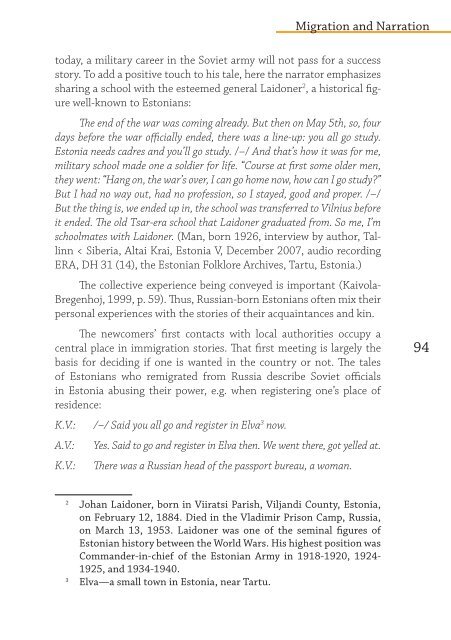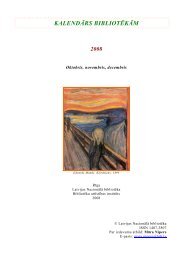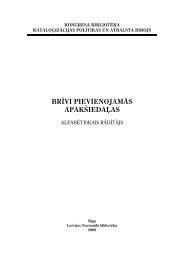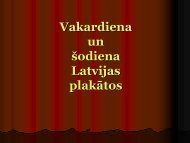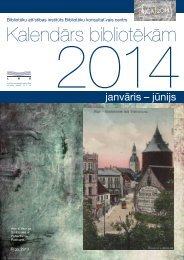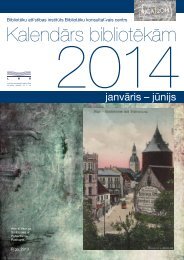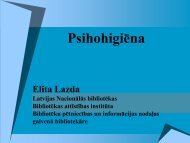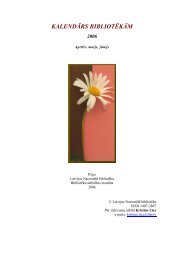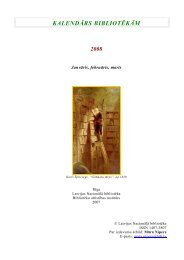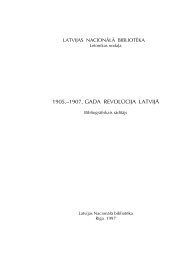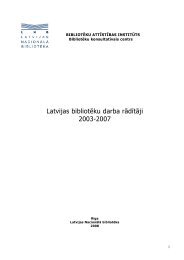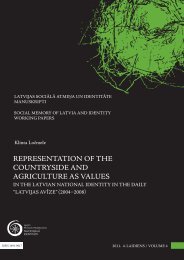ORAL HISTORY: MIGRATION AND LOCAL IDENTITIES - Academia
ORAL HISTORY: MIGRATION AND LOCAL IDENTITIES - Academia
ORAL HISTORY: MIGRATION AND LOCAL IDENTITIES - Academia
You also want an ePaper? Increase the reach of your titles
YUMPU automatically turns print PDFs into web optimized ePapers that Google loves.
Migration and Narrationtoday, a military career in the Soviet army will not pass for a successstory. To add a positive touch to his tale, here the narrator emphasizessharing a school with the esteemed general Laidoner 2 , a historical figurewell-known to Estonians:The end of the war was coming already. But then on May 5th, so, fourdays before the war officially ended, there was a line-up: you all go study.Estonia needs cadres and you’ll go study. /–/ And that’s how it was for me,military school made one a soldier for life. “Course at first some older men,they went: “Hang on, the war’s over, I can go home now, how can I go study?”But I had no way out, had no profession, so I stayed, good and proper. /–/But the thing is, we ended up in, the school was transferred to Vilnius beforeit ended. The old Tsar-era school that Laidoner graduated from. So me, I’mschoolmates with Laidoner. (Man, born 1926, interview by author, Tallinn< Siberia, Altai Krai, Estonia V, December 2007, audio recordingERA, DH 31 (14), the Estonian Folklore Archives, Tartu, Estonia.)The collective experience being conveyed is important (Kaivola-Bregenhoj, 1999, p. 59). Thus, Russian-born Estonians often mix theirpersonal experiences with the stories of their acquaintances and kin.The newcomers’ first contacts with local authorities occupy acentral place in immigration stories. That first meeting is largely thebasis for deciding if one is wanted in the country or not. The talesof Estonians who remigrated from Russia describe Soviet officialsin Estonia abusing their power, e.g. when registering one’s place ofresidence:K.V.: /–/ Said you all go and register in Elva 3 now.A.V.: Yes. Said to go and register in Elva then. We went there, got yelled at.K.V.: There was a Russian head of the passport bureau, a woman.942Johan Laidoner, born in Viiratsi Parish, Viljandi County, Estonia,on February 12, 1884. Died in the Vladimir Prison Camp, Russia,on March 13, 1953. Laidoner was one of the seminal figures ofEstonian history between the World Wars. His highest position wasCommander-in-chief of the Estonian Army in 1918-1920, 1924-1925, and 1934-1940.3Elva—a small town in Estonia, near Tartu.


